Amal Ghandour
On a recent weekend I walked from Clemenceau, where I live, to Gimmeyzeh for a rendezvous at Ginnette café with a friend. It was a quiet, sunny Sunday morning. The walk didn’t take more than the usual 20 minutes. I chose the downtown route, because the center (aka Solidere) is lifeless on Sundays. I didn’t have to suffer the car and electricity generators’ fumes.
In any event, as I reached Gimmeyzeh, where coolness and grunginess reign, with a lineup of bars, cafés, and boutique hotels, I noticed a rather new sight in this part of Beirut: three very old homeless men in the vicinity of the church. The first, asleep, had basically spread his mattress and wares on the far edge of a derelict store, the second sat crouched in front of a small juice bar eating what food and drinks the waiter had kindly given him, and the third was sleeping on the railing of the steps that take you to upper Achrafieh.
Of course, even the richest metropolises inflict such urban cruelties. The more conspicuous presence on our streets has actually always been the children and mothers with motionless babies that man traffic lights or sit on busy pavements in the hope that passersby might spare them a little charity. Stories abound about these nomadic colonies of the poor. All tragic, needless to say. And the 2.2 million Syrian refugees have only added more disheartening details to this very old tale.
But alongside these jaded features of our urbanities, the country’s crash has produced new vistas of impoverishment: the gatherings of the penniless at the doors of where the well-off go to eat or be entertained. In years past, you would see one or two selling flowers or asking for a handout, now they congregate in groups as if visitors from a netherworld.
And yet, as poignant as this snapshot is about Lebanon’s sorry condition, nowhere in it are the multitudes in the lower, middle, and even upper middle class who have fallen steepest because of the collapse. The statistics do offer a helpful sweeping view, but it’s the human stories that betray the depth of an entire strata’s pain and shock.
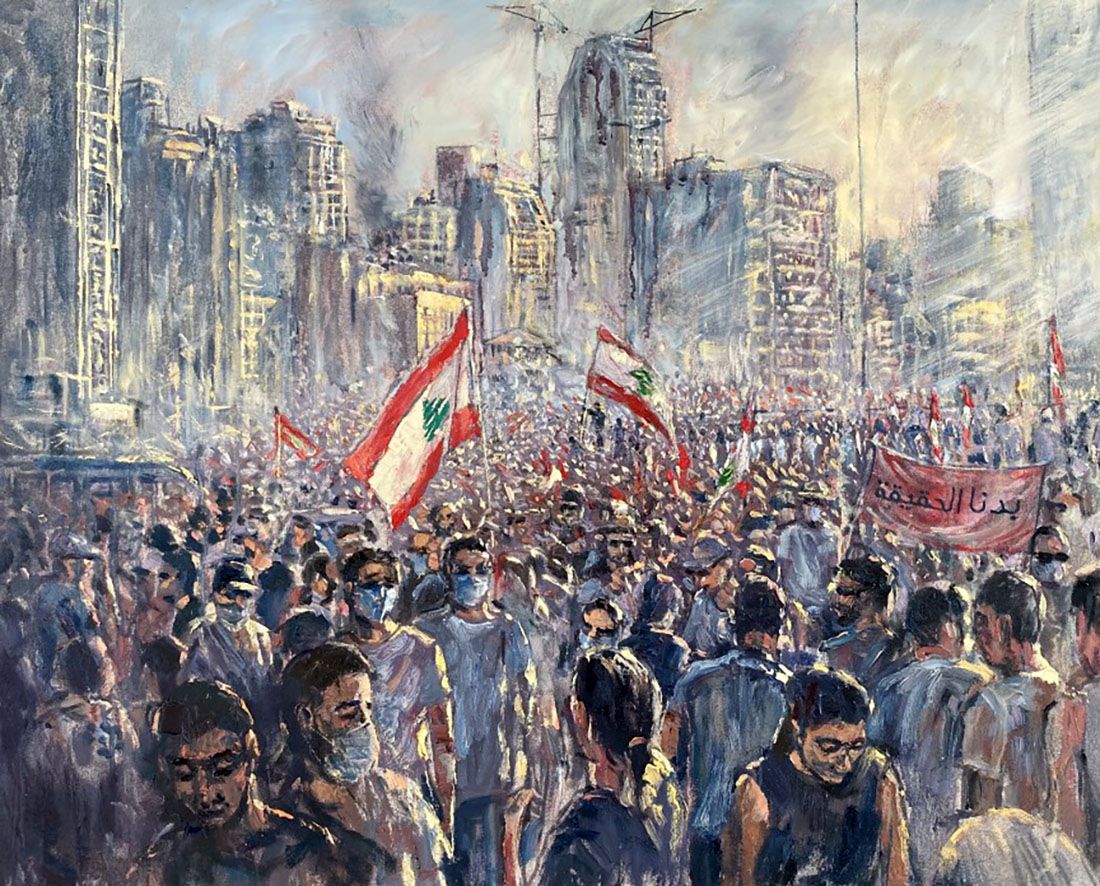
In our privileged midst, there are now members who have to check the price of bread in supermarkets, do without electricity for hours on end, resort to family abroad to help ends meet, seek financial aid for their children at university or school, cut meat from their weekly diet…, and do so ever so discreetly to better cope with the shame of suddenly having so little. Those of us who have been spared, and I am one, play our part, of course. We discreetly empathize and share, we listen if they feel the need to whisper their wants, and just as likely we pretend, like our fallen compatriots, that we have all emerged unscathed.
It’s a merciless plunge. These new joiners of the have-nots club used to regularly dine and travel abroad, shop all year round, go to Nice for their summer vacation, own two or three cars… If they were depositors, their hard-earned savings are all gone. If they are still salaried professionals, their income can buy a fraction of what they were conditioned to absolutely want. In their need, they too have come to inhabit a netherworld of their own. But I suppose the debtors among them would at least have found relief in paying down the debt in a Lebanese lira whose fortunes had turned even worse than theirs.
Middle Lebanon endures a kind of hardship that is frighteningly unfamiliar to it. So what’s with its inhabitants? Have they left in enough numbers, grown numb on anti-depressants in enough numbers, grown tired from scrimping in enough numbers, found patch-ups and workarounds in enough numbers to be this silent?
And yet, it is this group of casualties of the financial meltdown that has grown truly invisible in its grim shadow. It is their voice that rang loudest back in 2019, their members who fill the ranks of our unions and associations, their lot that has suffered the sharpest drop, and their future that has dimmed darkest. The poor of this country have never had much hope in anything.
Theirs was already an utterly wretched life before 2019, their presence never felt, their voices never heard, their weight featherlight in the calculations of their masters.
But Middle Lebanon endures a kind of hardship that is frighteningly unfamiliar to it. So what’s with its inhabitants? Have they left in enough numbers, grown numb on anti-depressants in enough numbers, grown tired from scrimping in enough numbers, found patch-ups and workarounds in enough numbers to be this silent?
Are they shell-shocked by the deceptions of a ruling elite that sold fake prosperity based on cost-free consumption hysteria and risk-free, sky-high interest rates? Is it the old, tired cliché that deep sectarian divisions trump the attractions of collective action for the disenchanted and disenfranchised? Or is it all of the above?
If there is a study out there that illuminates the psychologies of this quietude, I haven’t come across it yet. The powers that preside over this country must be reassured by this paralysis of a much maligned people, because, by the day, they become more mad and debauched.
Lebanon is literally fast coming apart at the seams, but they proceed as if on their last binge before the end of the world.
Every time we encounter the state for whatever reason, we glimpse the breathtaking extent of the breakdown: corridors strewn with garbage, employees who have no pen to write with or paper to write on, whole departments that don’t show up for work because of transportation costs and worthless salaries, other departments on permanent strike. And with all this, the incessant pursuit of bribes, large and small, to facilitate the simplest paperwork.
Witness the judiciary, already long compromised and tarnished by sectarianism and corruption, as it descends into low farce. The prosecutor general, the highest prosecutor in the land, is sparing with the special prosecutor assigned to the 2020 Beirut Port explosion. The PG has released all those in custody awaiting the completion of the investigation and issued a travel ban against the investigating prosecutor himself. Why? Pick your side and choose your rumor mill.
But one of the biggest detainees was the head of the port’s security, who happens to hold an American passport. Upon his release — wait for it — he promptly flees. You know what we’re all thinking.
Meanwhile, a delegation of the “change” parliamentarians, who went to the minister of justice to protest these latest legal shenanigans, ended up in a shoving match with the minister’s bodyguards.
What fun! There is comic relief in the spectacle, no doubt. We’re all laughing our heads off. But there is also everything tragic in it, not least this numbness we feel on the way to the ash heap of history.
“The Curious Case of Middle Lebanon” first appeared on Amal Ghandour’s blog, This Arab Life.



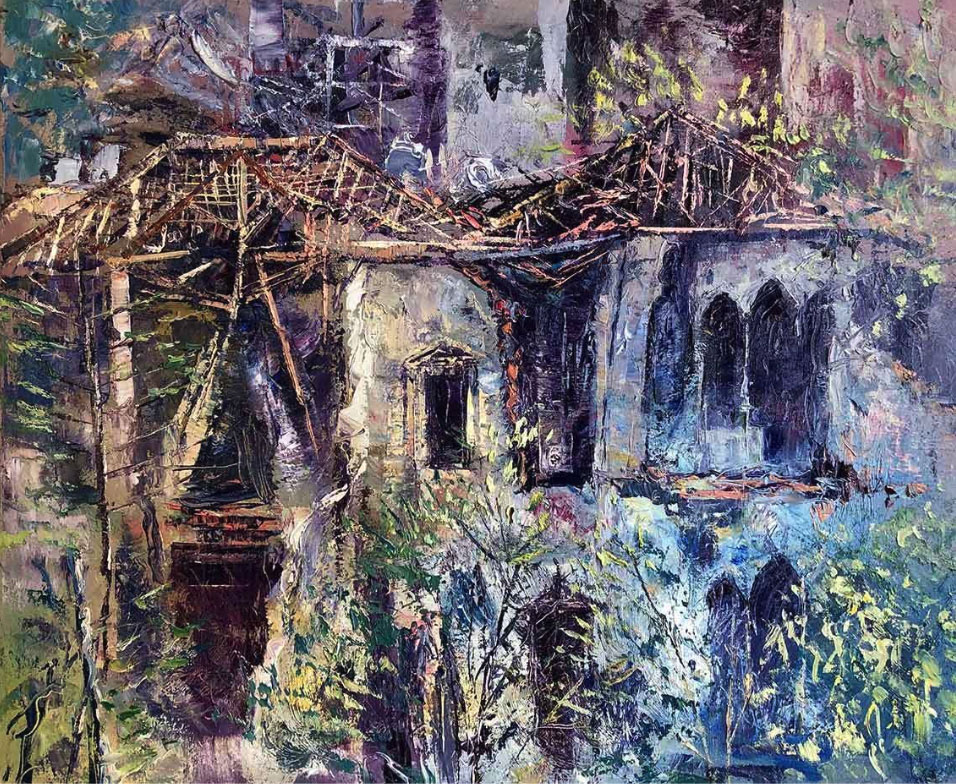
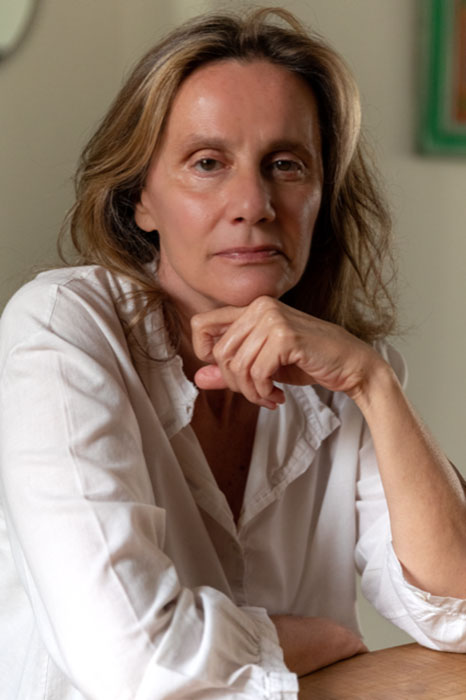



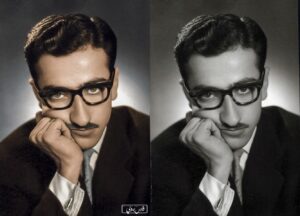

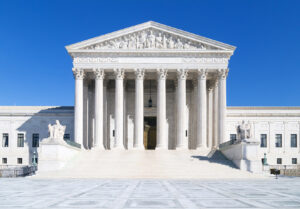


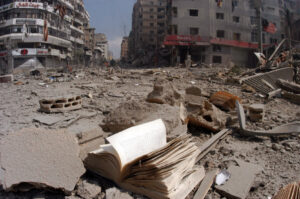







![Ali Cherri’s show at Marseille’s [mac] Is Watching You](https://themarkaz.org/wp-content/uploads/2025/09/Ali-Cherri-22Les-Veilleurs22-at-the-mac-Musee-dart-contemporain-de-Marseille-photo-Gregoire-Edouard-Ville-de-Marseille-300x200.jpg)





















































































































































